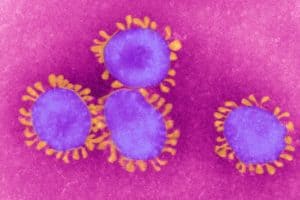Latest News
COVID-19: the importance of avoiding self-medication

COVID-19
Inadequate use of these drugs can cause serious and irreversible adverse effects and, moreover, deficiency in needy patients. Currently, there are no specific treatments or vaccines for COVID-19 infection.
The current scenario of the epidemic effects of COVID-19 has caused panic and fear, not only in Colombia’s population, but worldwide, especially in extremely vulnerable populations that cause and die serious complications. In this sense, the widespread dissemination of false information or unreliable methods has raised false expectations about the treatment and prevention of this disease, prompting the general public to seek and use ations that have not yet been proven effective. To prevent the spread and spread of the virus.
Currently, there are no specific treatments or vaccines available for COVID-19 infection. However, the results of some studies have documented an inhibitory effect on viral replication in both moderate and severe cases of chloroquine and hydroxychloroquine COVID-19. Azithromycin is used in some patients to reduce bacterial superinfection.
Read: An anti-malaria medicine, the dream solution against coronavirus?

Hydroxychloroquine is a medicine used to treat malaria, which acts by blocking the entry of the virus into the cells and has anti-inflammatory and immunomodulatory effects, which is why it is used in patients with arthritis and systemic lupus erythematosus. Some of these side effects include headaches, dizziness, loss of appetite, stomach, diarrhea, vomiting, rashes (skin rashes), and vertigo, vision problems, heart problems and anemia. For its part, azithromycin is a broad-spectrum antibiotic that is used to treat bacterial infections such as pneumonia, skin and urinary tract infections. It can cause diarrhea, headache, vomiting, stomach pain, nausea,
In this context, it is necessary to reiterate that the data for prescribing the use of drugs such as chloroquine, hydroxychloroquine, azithromycin can come from unreliable sources and, to date, there are no studies with different drugs. In the general population, there is sufficient scientific support for the widespread use of these drugs in the prevention or treatment of COVID-19 infection. However, in Colombia, the protocol for managing COVID-19 infected patients in healthcare institutions. In this sense, the use of these ations should always be carried out with notice and medical supervision. Therefore, their use on these initiatives (self-ation shaadi) should be avoided because the inadequate use of these drugs can cause serious and irreversible adverse effects and shortages for patients in need.
Sebastian was born and raised in the busy city of Abbottabad. As a journalist, Saad Mushtaq has contributed to many online publications including the PAK Today and the Huffing Post. In regards to academics, Saad Mushtaq earned a degree in business from the Abbottabad UST, Havelian. Saad Mushtaq follows the money and covers all aspects of emerging tech here at The Hear Up.Thanks










